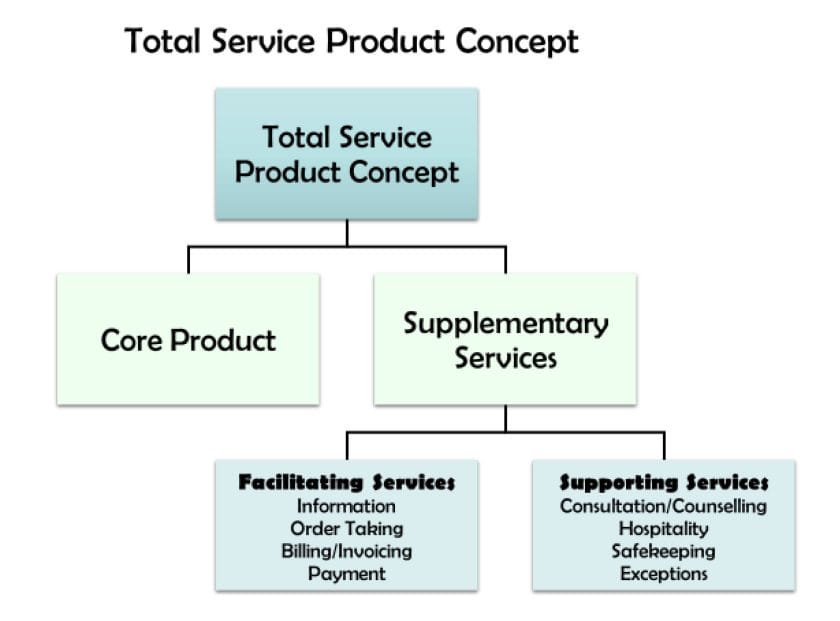Services refer to the non-tangible products or actions that are offered by businesses to meet the needs of their customers. These can range from professional services such as consulting and legal advice, to personal services such as haircuts and massages. In essence, services are any type of assistance or support provided by a company to enhance the value of their offerings and improve customer satisfaction.
Understanding Services: Definition and Characteristics
Services are intangible products that are provided to customers in exchange for payment. Unlike physical goods, services cannot be touched, seen or felt. They are usually consumed at the same time they are produced. Services can be provided by individuals or organizations and can range from simple tasks such as lawn care to complex services such as consulting.
The Characteristics of Services
There are several characteristics that distinguish services from physical goods:
- Intangibility: Services cannot be touched or seen.
- Inseparability: Services are produced and consumed at the same time.
- Heterogeneity: Each service is unique and varies from one provider to another.
- Perishability: Services cannot be stored for future use.
The Importance of Understanding Service Characteristics
Understanding the characteristics of services is important for service providers because it helps them to design, market and deliver their services effectively. For example, since services cannot be touched or seen, service providers need to find ways to make their services tangible through branding and marketing efforts. In addition, since each service is unique, service providers need to focus on delivering high-quality services consistently in order to build a strong reputation and attract repeat business.
The Role of Customer Experience in Service Delivery
The customer experience plays a critical role in service delivery. Since services are intangible, customers rely on their interactions with service providers to form an opinion about the quality of the service being provided. Service providers need to focus on creating positive experiences for their customers by providing excellent customer service, responding promptly to customer inquiries and complaints, and delivering high-quality services consistently over time.
The Differences Between Products and Services Explained
Products and services are two different types of offerings that businesses can provide to customers. While products are physical goods that customers can touch, see or feel, services are intangible products that cannot be touched or seen. Understanding the differences between products and services is important for businesses because it affects how they market, price and deliver their offerings.
The Characteristics of Products
Products have several characteristics that distinguish them from services:
- Tangibility: Products can be touched, seen or felt.
- Homogeneity: Each product is identical to other products of the same type.
- Storage: Products can be stored for future use.
- Ownership: Customers own the products they purchase.
The Importance of Product Characteristics in Business Strategy
The characteristics of products play an important role in business strategy. For example, since products can be stored for future use, businesses can build up inventory to meet anticipated demand. In addition, since each product is identical to other products of the same type, businesses can focus on reducing production costs through economies of scale.
The Characteristics of Services
Services have several characteristics that distinguish them from products:
- Intangibility: Services cannot be touched or seen.
- Inseparability: Services are produced and consumed at the same time.
- Heterogeneity: Each service is unique and varies from one provider to another.
- Perishability: Services cannot be stored for future use.
The Importance of Service Characteristics in Business Strategy
The characteristics of services also play an important role in business strategy. For example, since services are intangible, businesses need to find ways to make their services tangible through branding and marketing efforts. In addition, since each service is unique, businesses need to focus on delivering high-quality services consistently in order to build a strong reputation and attract repeat business.
Examples of Different Types of Services You Might Encounter
Services can be provided by individuals or organizations and can range from simple tasks such as lawn care to complex services such as consulting. Here are some examples of different types of services:
Personal Services
- Haircutting and styling
- Massage therapy
- Nail care
- Cleaning services
- Pet grooming
The Importance of Personal Services
Personal services play an important role in maintaining the health and well-being of individuals. By providing these services, service providers help people feel good about themselves and improve their quality of life.
Professional Services
- Consulting services (e.g. management consulting)
- Legal services (e.g. contract review)
- Financial planning and investment advice
- Marketing and advertising services
- Engineering and architectural design services
The Importance of Professional Services
Professional services play an important role in helping businesses and individuals make informed decisions. By providing these specialized skills, service providers help their clients achieve their goals more efficiently and effectively.
Retail Services
- Grocery stores
- Department stores
- Online retailers
- Specialty stores (e.g. electronics, clothing)
- Convenience stores
The Importance of Retail Services
Retail services play an important role in providing consumers with access to the goods they need and want. By providing these services, retailers help people save time and effort by providing a convenient way to purchase goods.
Common Characteristics of Service-Based Businesses
Service-based businesses are businesses that provide intangible products to customers in exchange for payment. While service-based businesses can vary widely in terms of the types of services they offer, there are several common characteristics that many service-based businesses share:
Focused on Customer Experience
Service-based businesses are often highly focused on providing a positive customer experience. Since services cannot be touched or seen, customers rely on their interactions with service providers to form an opinion about the quality of the service being provided.
The Importance of Customer Experience in Service-Based Businesses
The customer experience is critical for service-based businesses because it affects customer satisfaction and loyalty. By focusing on creating positive experiences for their customers, service providers can build strong relationships with their clients and attract repeat business.
Reliant on Skilled Workers
Service-based businesses rely heavily on skilled workers who have specialized knowledge or expertise in a particular area. These workers are often responsible for delivering high-quality services to clients.
The Importance of Skilled Workers in Service-Based Businesses
Skilled workers play a critical role in the success of service-based businesses. By hiring and retaining skilled workers, service providers can ensure that they are delivering high-quality services consistently over time.
Challenged by Heterogeneity
Since each service is unique and varies from one provider to another, service-based businesses are often challenged by heterogeneity. Service providers need to find ways to differentiate themselves from their competitors in order to attract and retain customers.
The Importance of Differentiation in Service-Based Businesses
Differentiation is critical for service-based businesses because it helps them to stand out from their competitors and attract customers. By focusing on delivering high-quality services that meet the unique needs of their clients, service providers can build a strong reputation and attract repeat business.
Marketing Strategies for Service Providers: What Works?
Marketing is an important part of any business strategy, including those used by service providers. Effective marketing strategies can help service providers reach new customers, build brand awareness, and increase sales. Here are some marketing strategies that have proven effective for service providers:
Social Media Marketing
Social media marketing involves using social media platforms such as Facebook, Twitter, and Instagram to promote products or services. Social media marketing can be an effective way for service providers to reach new customers and engage with existing ones.
The Importance of Social Media Marketing in Service Provider Marketing Strategies
Social media marketing is important for service providers because it allows them to connect with potential customers on a more personal level. By creating engaging content that resonates with their target audience, service providers can build a loyal following and increase brand awareness over time.
Email Marketing
Email marketing involves sending promotional emails to a list of subscribers who have opted-in to receive communications from a particular business or organization. Email marketing can be an effective way for service providers to stay top-of-mind with their existing customer base.
The Importance of Email Marketing in Service Provider Marketing Strategies
Email marketing is important for service providers because it allows them to communicate directly with their customers and provide them with valuable information about new services, promotions, and other updates. By providing relevant content that resonates with their audience, service providers can build stronger relationships with their customers over time.
Content Marketing
Content marketing involves creating and sharing valuable content such as blog posts, videos, and infographics that are designed to attract and engage a target audience. Content marketing can be an effective way for service providers to establish themselves as experts in their field.
The Importance of Content Marketing in Service Provider Marketing Strategies
Content marketing is important for service providers because it allows them to demonstrate their expertise and build trust with potential customers. By providing valuable content that helps solve problems or provides insights into industry trends, service providers can position themselves as thought leaders in their field.
The Role of Customer Service in Delivering Quality Services
Customer service plays a critical role in the delivery of quality services. Since services cannot be touched or seen, customers rely on their interactions with service providers to form an opinion about the quality of the service being provided. Here are some ways that customer service impacts the delivery of quality services:
Responding Promptly to Customer Inquiries and Complaints
Service providers need to respond promptly to customer inquiries and complaints in order to deliver high-quality services. By addressing customer concerns quickly and effectively, service providers can build trust with their clients and demonstrate a commitment to delivering excellent customer experiences.
The Importance of Prompt Responses in Customer Service
Prompt responses are important for customer service because they show customers that their concerns are being taken seriously. By responding quickly to customer inquiries and complaints, service providers can prevent small issues from escalating into larger problems that could damage their reputation.
Providing Clear and Accurate Information
Service providers need to provide clear and accurate information to customers in order to deliver high-quality services. By providing customers with the information they need to make informed decisions, service providers can build trust and establish themselves as experts in their field.
The Importance of Clear and Accurate Information in Customer Service
Clear and accurate information is important for customer service because it helps customers understand what they are getting for their money. By providing transparent pricing, detailed descriptions of services, and other relevant information, service providers can help customers feel confident about their purchase decisions.
Delivering High-Quality Services Consistently Over Time
Service providers need to focus on delivering high-quality services consistently over time in order to build a strong reputation and attract repeat business. By focusing on quality control and consistency, service providers can differentiate themselves from competitors and establish themselves as leaders in their field.
The Importance of Quality Control in Customer Service
Quality control is important for customer service because it ensures that customers are receiving the level of service they expect. By monitoring performance metrics such as customer satisfaction ratings, service providers can identify areas where improvements are needed and take action to address them.
Measuring Customer Satisfaction: How Do Service Providers Do It?
Measuring customer satisfaction is an important part of any business strategy, including those used by service providers. Measuring customer satisfaction allows service providers to identify areas where improvements are needed and take action to address them. Here are some ways that service providers measure customer satisfaction:
Customer Surveys
Customer surveys are a common way for service providers to measure customer satisfaction. Surveys can be conducted online, over the phone, or in person. Surveys typically ask customers to rate their level of satisfaction with various aspects of the service being provided.
The Importance of Customer Surveys in Measuring Customer Satisfaction
Customer surveys are important for measuring customer satisfaction because they provide direct feedback from customers about their experiences with a particular service provider. By analyzing survey data, service providers can identify areas where improvements are needed and take action to address them.
Net Promoter Score (NPS)
The Net Promoter Score (NPS) is a metric that measures customer loyalty. Customers are asked how likely they are to recommend a particular service provider to others on a scale from 0-10. Based on their responses, customers are then categorized as promoters (9-10), passives (7-8), or detractors (0-6).
The Importance of NPS in Measuring Customer Satisfaction
NPS is important for measuring customer satisfaction because it provides an overall measure of customer loyalty. By tracking NPS over time, service providers can identify trends and take action to improve customer loyalty.
Mystery Shopping
Mystery shopping involves hiring individuals to pose as customers and evaluate the quality of service being provided by a particular business or organization. Mystery shopping can be an effective way for service providers to get an unbiased
The Impact of Technology on the Delivery of Services
Technology has revolutionized the way services are delivered to customers. With the advent of smartphones and other mobile devices, customers can now access services from anywhere and at any time. This has led to an increase in demand for online services such as food delivery, ride-sharing, and e-commerce. Service providers have had to adapt by investing in technology that allows them to offer their services online.
Online Platforms
One of the ways service providers have adapted is by creating online platforms where customers can access their services. For example, restaurants have created websites and mobile apps that allow customers to order food online and have it delivered to their doorstep. Ride-sharing companies like Uber and Lyft have also created apps that allow customers to book rides from their smartphone.
Improved Efficiency
Technology has also improved the efficiency of service delivery. Automated systems can now handle tasks that were previously done manually, such as booking appointments or processing payments. This has reduced wait times for customers and allowed service providers to serve more customers in less time.
Personalization
Another benefit of technology is that it allows service providers to personalize their offerings based on customer preferences. For example, a hotel might use data analytics to personalize room amenities based on a customer’s past stays or social media activity.
Overall, technology has had a significant impact on the delivery of services, allowing businesses to reach more customers, improve efficiency, and personalize offerings.
Government Regulations and Their Effects on Certain Types of Services
Government regulations play a crucial role in shaping the way certain types of services are provided. These regulations can affect everything from pricing strategies to quality control measures.
Licensing Requirements
One common form of government regulation is licensing requirements for certain professions or industries. For example, healthcare professionals like doctors and nurses are required to obtain a license before they can practice. This ensures that only qualified individuals are providing these services.
Consumer Protection Laws
Another type of government regulation is consumer protection laws. These laws are designed to protect consumers from fraudulent or unethical business practices. For example, the Federal Trade Commission (FTC) enforces laws that prohibit false advertising and deceptive marketing practices.
Price Controls
Government regulations can also include price controls for certain types of services. For example, in some countries, governments regulate the prices of prescription drugs to ensure they remain affordable for consumers.
While government regulations can help protect consumers and ensure quality service delivery, they can also create barriers to entry for new businesses and limit innovation in certain industries.
Ethical Considerations in Providing Services to Customers
Providing ethical services is crucial for building trust with customers and maintaining a positive reputation. Ethical considerations include everything from respecting customer privacy to ensuring fair pricing practices.
Privacy
One ethical consideration is privacy. Service providers must take steps to protect customer data and ensure it is not shared without their consent. This includes implementing secure systems for storing and transmitting sensitive information like credit card numbers or medical records.
Fair Pricing Practices
Another ethical consideration is fair pricing practices. Service providers must avoid price gouging or other unfair pricing tactics that take advantage of customers in vulnerable situations. This includes being transparent about prices and avoiding hidden fees or charges.
Diversity and Inclusion
Finally, service providers should strive to promote diversity and inclusion in their offerings. This means ensuring that all customers feel welcome and valued regardless of their race, gender, religion, or sexual orientation.
Overall, ethical considerations play a critical role in building trust with customers and creating a sustainable business model based on long-term relationships rather than short-term profits.
Quality Control and Consistency in Service Delivery: How to Achieve It?
Maintaining consistent quality in service delivery is crucial for building a positive reputation and retaining customers. Quality control measures include everything from employee training to customer feedback systems.
Employee Training
One key factor in achieving consistent quality is employee training. Service providers must ensure that their employees are properly trained in all aspects of service delivery, including customer service, technical skills, and safety procedures.
Standard Operating Procedures
Another way to achieve consistency is by implementing standard operating procedures (SOPs). SOPs provide a set of guidelines that employees can follow to ensure that services are delivered consistently across all locations or departments.
Customer Feedback Systems
Finally, service providers should implement customer feedback systems to gather input on the quality of their services. This includes surveys, online reviews, and social media monitoring. By listening to customer feedback, service providers can identify areas for improvement and make changes accordingly.
Overall, achieving consistent quality in service delivery requires a combination of employee training, standard operating procedures, and customer feedback systems.
Pricing Strategies for Successful Service-Based Businesses
Pricing strategies play a critical role in the success of service-based businesses. Pricing decisions must balance the need for profitability with the desire to remain competitive in an ever-changing marketplace.
Cost-Plus Pricing
One common pricing strategy is cost-plus pricing. This involves adding a markup to the cost of providing the service to arrive at the final price. For example, if it costs $50 to provide a service and you add a 20% markup, the final price would be $60.
Value-Based Pricing
Another pricing strategy is value-based pricing. This involves setting prices based on the perceived value of the service to the customer. For example, a luxury hotel might charge higher prices based on the perceived value of its amenities and services.
Dynamic Pricing
Finally, dynamic pricing involves adjusting prices based on market demand or other factors. For example, airlines might increase prices during peak travel times or lower prices to fill empty seats.
Overall, service-based businesses must carefully consider their pricing strategies to balance profitability with competitiveness in the marketplace.
The Importance of Branding in Building a Successful Service-Based Business
Branding is crucial for building a successful service-based business. A strong brand can differentiate a business from its competitors and create a positive image in the minds of customers.
Brand Identity
One key aspect of branding is brand identity. This includes everything from the logo and color scheme to the messaging and tone used in marketing materials. A strong brand identity can help customers recognize and remember a business, leading to increased loyalty and repeat business.
Customer Experience
Another important aspect of branding is the customer experience. Service providers must ensure that every interaction with customers reflects their brand values and reinforces their brand identity. This includes everything from greeting customers warmly to providing high-quality service with attention to detail.
Social Media Presence
Finally, social media has become an essential part of branding for service-based businesses. Social media platforms like Facebook, Twitter, and Instagram provide opportunities for businesses to engage with customers, share content, and build relationships. By creating compelling content that resonates with their target audience, businesses can strengthen their brand presence online.
Overall, branding is critical for building trust with customers and creating long-term relationships that drive business success.
Staying Competitive in an Ever-Changing Marketplace: Tips for Service Providers
In today’s fast-paced marketplace, staying competitive requires constant innovation and adaptation. Service providers must be willing to embrace change and take risks to remain relevant.
Embrace Technology
One key way to stay competitive is by embracing technology. Service providers should invest in tools and systems that allow them to offer their services online, automate tasks, and personalize offerings. By leveraging technology, businesses can reach more customers and improve efficiency.
Focus on Customer Service
Another way to stay competitive is by focusing on customer service. Service providers should strive to provide exceptional service at every touchpoint with customers, from the initial inquiry to post-service follow-up. By creating positive experiences for customers, businesses can build loyalty and differentiate themselves from competitors.
Innovate Constantly
Finally, service providers must be willing to innovate constantly. This means experimenting with new products or services, testing new marketing strategies, and adapting quickly to changing market conditions. By staying nimble and flexible, businesses can position themselves for long-term success in an ever-changing marketplace.
Overall, staying competitive requires a willingness to embrace change and take risks while maintaining a focus on customer service and innovation.
Benefits of Regular Exercise
Physical Health Benefits
Regular exercise has numerous physical health benefits. It helps in maintaining a healthy weight, reducing the risk of chronic diseases such as heart disease, stroke, and diabetes. Additionally, it strengthens muscles and bones, improves flexibility and balance, and enhances overall physical performance. Exercise also boosts the immune system, making it easier to fight off infections.
Examples of Physical Health Benefits:
- Reduced risk of heart disease
- Improved blood pressure levels
- Better control over blood sugar levels for people with diabetes
- Increase in bone density which reduces the risk of osteoporosis
- Improved lung function and respiratory health
Mental Health Benefits
Exercise is not only beneficial for physical health but also mental health. It can reduce symptoms of depression and anxiety by releasing endorphins that improve mood and promote relaxation. Exercise can also help increase self-esteem and confidence by achieving fitness goals.
Examples of Mental Health Benefits:
- Reduction in symptoms of depression and anxiety
- Increase in self-esteem and confidence levels
- Better sleep quality which promotes better mental health
- Increase in cognitive function which improves memory retention
- Decreased stress levels
Overall, regular exercise has numerous benefits for both physical and mental health. Incorporating exercise into your daily routine can lead to a happier, healthier life.
In conclusion, services refer to the intangible offerings that businesses provide to meet the needs of their customers. It is a crucial aspect of any business, and it can make or break customer satisfaction. If you’re looking for innovative and efficient solutions for your business needs, we invite you to get in touch with us and check out our AI services. Our team is always ready to assist you in achieving your goals and taking your business to the next level. Let’s work together towards success!

What is your definition of service?
A service is an action that provides assistance or aid to someone. It can also refer to the provision of utilities or commodities such as water, electricity, or gas that are necessary or requested by the public.
What are the 3 types of services?
There are three main categories of services: business services, social services, and personal services, each with their own distinct offerings.

What is a service in a business?
Services, as defined by BusinessDictionary.com, are intangible offerings that include accounting, banking, cleaning, consulting, education, insurance, medical treatment, or transportation. Usually, supporting goods are necessary for these services to be effective.
What is services and examples?
Services are intangible transactions, such as insurance or car rentals, where you are not purchasing a physical product but rather paying for a service.
Why does service mean?
Public service refers to any type of work or assistance provided to the community, an individual or an organization. The award was given to her in recognition of her dedication to public service throughout her lifetime.
What are common services?
The cloud management platform relies on common services, which are used by other services. These services include identity and access management, domain name management, time synchronization, email delivery, and certificate management.








